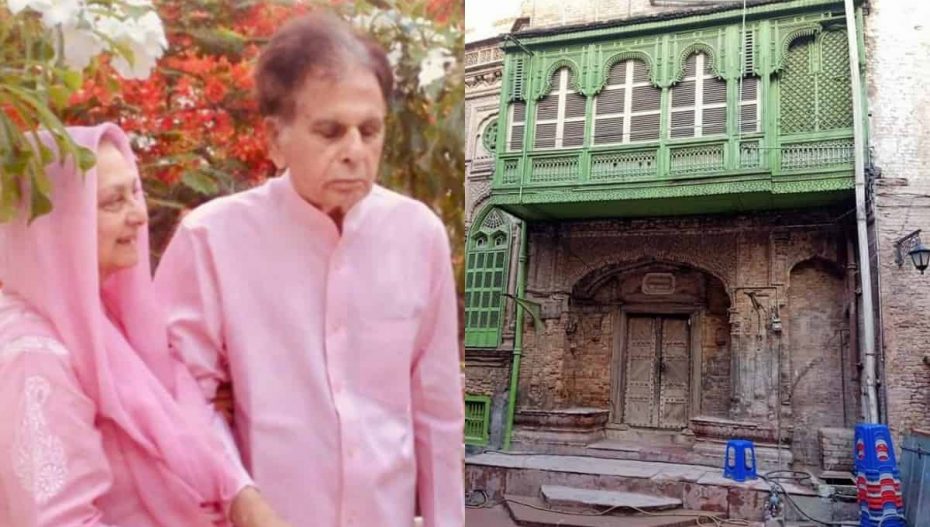A little-known fact about the superstar Dilip Kumar: he was born in Peshawar, now in Pakistan. Beloved on both sides of the border, Dilip Kumar exemplified the connections and ties of a pre-partition South Asia. In a tweet on Wednesday, Pakistan’s Prime Minister Imran Khan expressed his condolences at the demise of the Bollywood veteran and called him the “greatest and most versatile actor of my generation”.
In his autobiography Dilip Kumar: The Substance and The Shadow, the “Tragedy King” fondly remembers his now over 100-years-old haveli in Qissa Khawani Bazaar (‘Story-tellers’ Bazaar’) of Peshawar. He also talks about the close relations Hindu-Muslim ties in the neighbourhood and his father’s friendship with the Kapoor family, who also trace their origins to Peshawar.
Last year, he reshared pictures of the house on Twitter and asked others who visited the place to tag him so he could see his childhood home. Kumar’s home was declared a national heritage monument in Pakistan on July 13, 2014, by then Prime Minister Nawaz Sharif. The Khyber Pakhtunwala provincial government has been trying to acquire the house to turn it into a museum since then. In May, the KPK government released Rs 2.30 crore for purchasing ancestral homes of Dilip Kumar and Raj Kapoor.
Dilip Kumar’s father was a fruit merchant before his family moved to India in the 1930s. Another interesting story: during the early years, Dilip Kumar, then Mohammed Yusuf Khan, was arrested for his anti-British speech and spent a night fasting with Sardar Vallabhbhai Patel in Yerwada Jail, Poona.
Beloved on both sides of the border, in 1997, Kumar was awarded the Nishan-e-Imtiaz – the highest civilian honour in Pakistan. He’s the only Indian to have won this award.
Other renowned Bollywood celebrities with connections to the Peshawar and its Qissa Khawani Bazaar, once called the “Picadilly of Central Asia” include Vinod Khanna, Anil Kapoor, Shahrukh Khan, Madhubala, Saira Bano, Amjad Khan, Manoj Kumar, and Randhir Kapoor.












